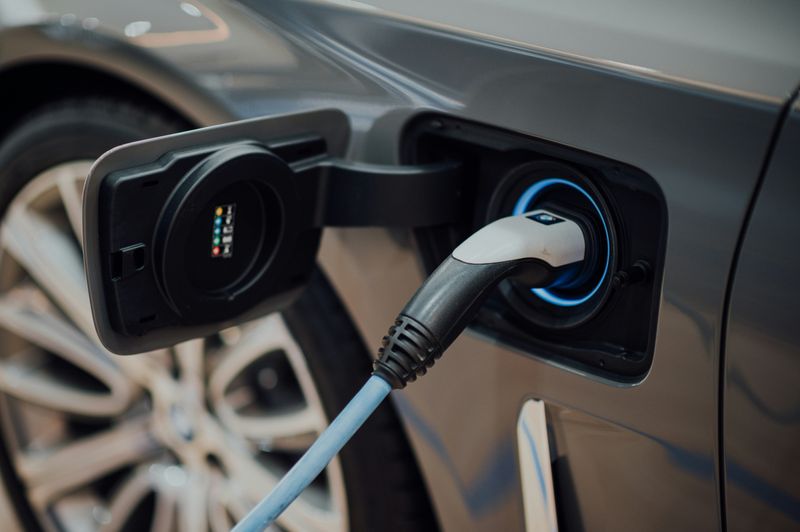"And," "So," "But,"...these linking words can get so boring and repetitive when you use them all the time. They can make your writing seem too simple and give an informal tone to your writing.
Use formal linking words to describe cause and effect, contrasts, and to give examples. This will help your writing appear more professional in formal contexts.
We'll use climate change as an example of a formal topic.
 Photo by Josep Castells on Unsplash
Photo by Josep Castells on UnsplashUse Linking Words to Describe Cause and Effect Relationships
In formal contexts, linking words are useful for describing cause and effect relationships. Here's how to use the linking words "therefore," "because," and "due to" in a sentence. For examples, we'll describe the connection between pollution and climate change.
 Photo by Petter Rudwall on Unsplash
Photo by Petter Rudwall on UnsplashTherefore
"Therefore" is normally used to connect two sentences. The first sentence should be the cause, and the second sentence should be the effect.

Factories release pollution. Therefore, they cause climate change.
CO2 is a greenhouse gas. Therefore, CO2 causes climate change.
Greenhouse gases trap heat in the atmosphere. Therefore, they heat the Earth.
Because
"Because" is normally used in the middle of one sentence. It separates two ideas. The second idea should be the cause of the first.

Climate change is getting worse because factories are releasing pollution.
CO2 causes climate change because it is a greenhouse gas.
Greenhouse gases heat the Earth because they trap heat in the atmosphere.
Due to
"Due to" can be used at the start of a sentence or in the middle of one. It separates two ideas. The second idea should be the cause of the first. Importantly, "due to" can't introduce an idea that could be a complete sentence on its own.

Climate change is getting worse due to factories releasing pollution.
CO2 causes climate change due to it being a greenhouse gas.
Greenhouse gases heat the Earth due to their trapping heat in the atmosphere.

Both "because" and "due to" can start a sentence. Just make sure to separate the first part of the sentence (the cause) from the second part (the effect) with a comma:
Due to factories releasing pollution, change is getting worse.
Because greenhouse gases trap heat in the atmosphere, the heat the Earth.
Quiz
Fill in the blank: The air is polluted ___ that factory.
Use Linking Words to Contrast Ideas
In formal contexts, you'll often want to contrast two or more ideas. For example, you might want to say that gas cars are efficient but electric cars are good for the environment (contrasting two positives).
Here's how to use the linking words "while", "even though", and "however" to contrast gas and electric cars.
 Photo by CHUTTERSNAP on Unsplash
Photo by CHUTTERSNAP on UnsplashWhile
"While" is used to contrast two ideas in the same sentence. It can go at the start of the sentence or in the middle of the sentence.
While electric cars are powered by electricity, gas cars are powered by gas.
Gas cars are over a hundred years old, while electric cars are relatively new.
Electric cars do not emit pollution, while gas cars emit a lot of pollution.
Even Though
"Even though" is also used to contrast two ideas in the same sentence, and it can also go at either the start or middle of the sentence. It's different from "while" because it's used to show that the relationship between the two ideas is unexpected.
Many people buy electric cars even though they are expensive.
Electric cars can still have negative effects on the environment even though they do not emit pollution.
Even though electric car infrastructure has developed a lot in the past several years, it is still not perfect.
However
"However" is normally used in the middle of two sentences. The second sentence will be an idea that contrasts the first sentence. It is placed in the same spot in a sentence as "therefore" but the meaning is different.
Electric cars are powered by electricity. However, the electricity that use may come from sources that cause pollution.
The best option is to take public transit. However, electric cars are still better than gas cars.
Gas cars cause pollution. However, many people still prefer buying them.

Quiz
Fill in the blank: ___ he has no place to charge it, my friend just bought an electric car.
Use Linking Words to Introduce Examples
In formal contexts, you'll often want to add factual examples of ideas you address. Here's how to use the linking words "for instance," "such as" and "including" to introduce examples of the consequences of climate change.
 Photo by Matt Howard on Unsplash
Photo by Matt Howard on UnsplashFor Instance
"For instance" is used at the start of a sentence. It introduces an example of something that was mentioned in the previous sentence.
Climate change can have negative effects. For instance, forest fires can be caused by climate change.
Rising sea levels will affect many countries. For instance, The Maldives may end up underwater.
Some crops may be affected by climate change. For instance, bananas may no longer be able to grow in certain regions.
Such as
"Such as" is used in the middle of a sentence. It introduces an example of something that was mentioned earlier in the sentence.
Climate change can have negative effects such as forest fires.
Rising sea levels will affect many countries such as The Maldives.
Some crops, such as bananas, may no longer be able to grow in certain regions.
Including
"Including" is normally used in the middle of a sentence. It introduces an example of something that was mentioned earlier in the sentence.
Climate change can have negative effects, including forest fires.
Rising sea levels will affect many countries, including The Maldives.
Some crops, including bananas, may no longer be able to grow in certain regions.
Take Action
Try to use these linking words to describe formal topics relevant to you.

Your feedback matters to us.
This Byte helped me better understand the topic.
